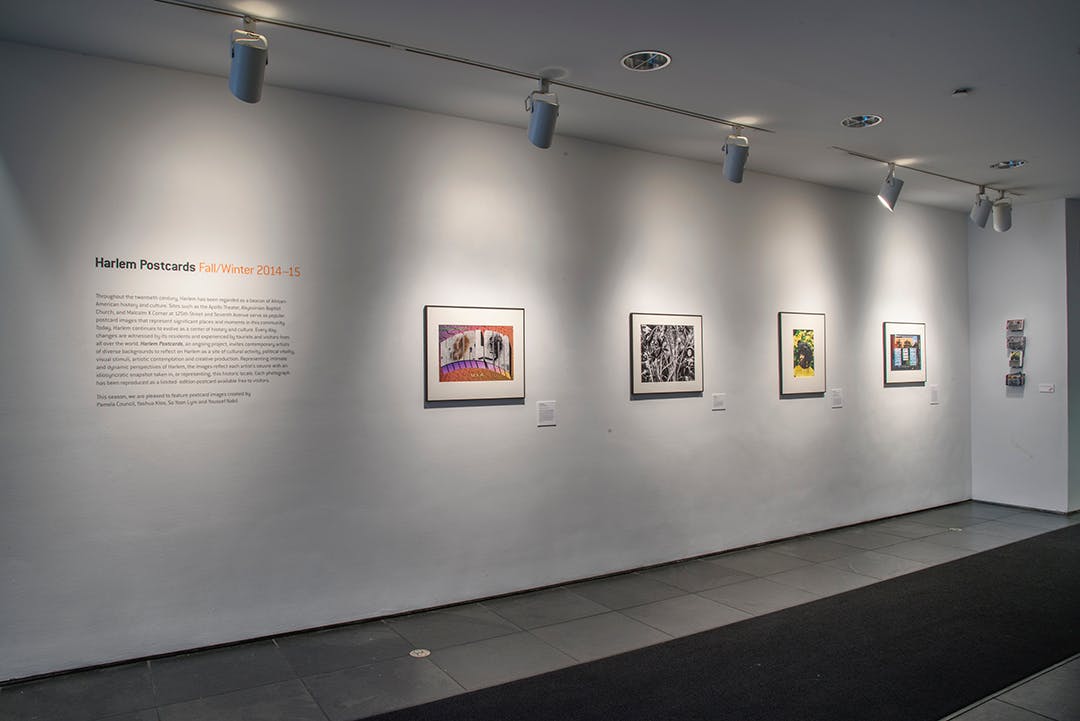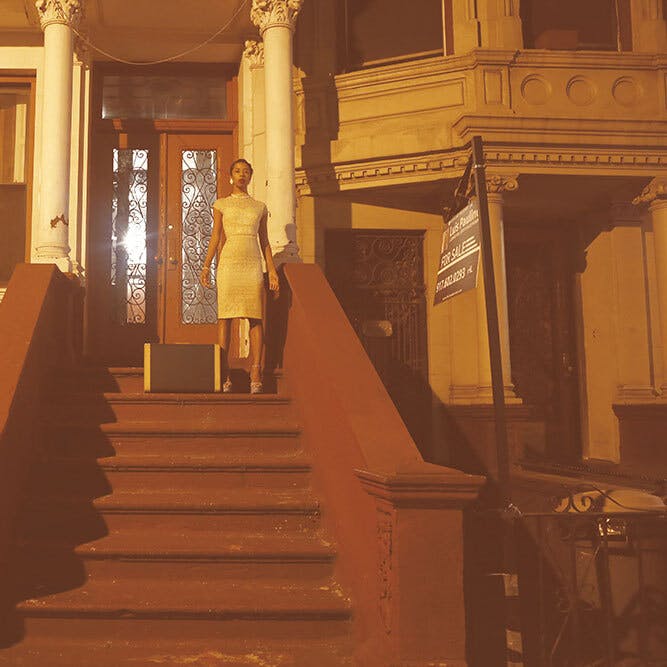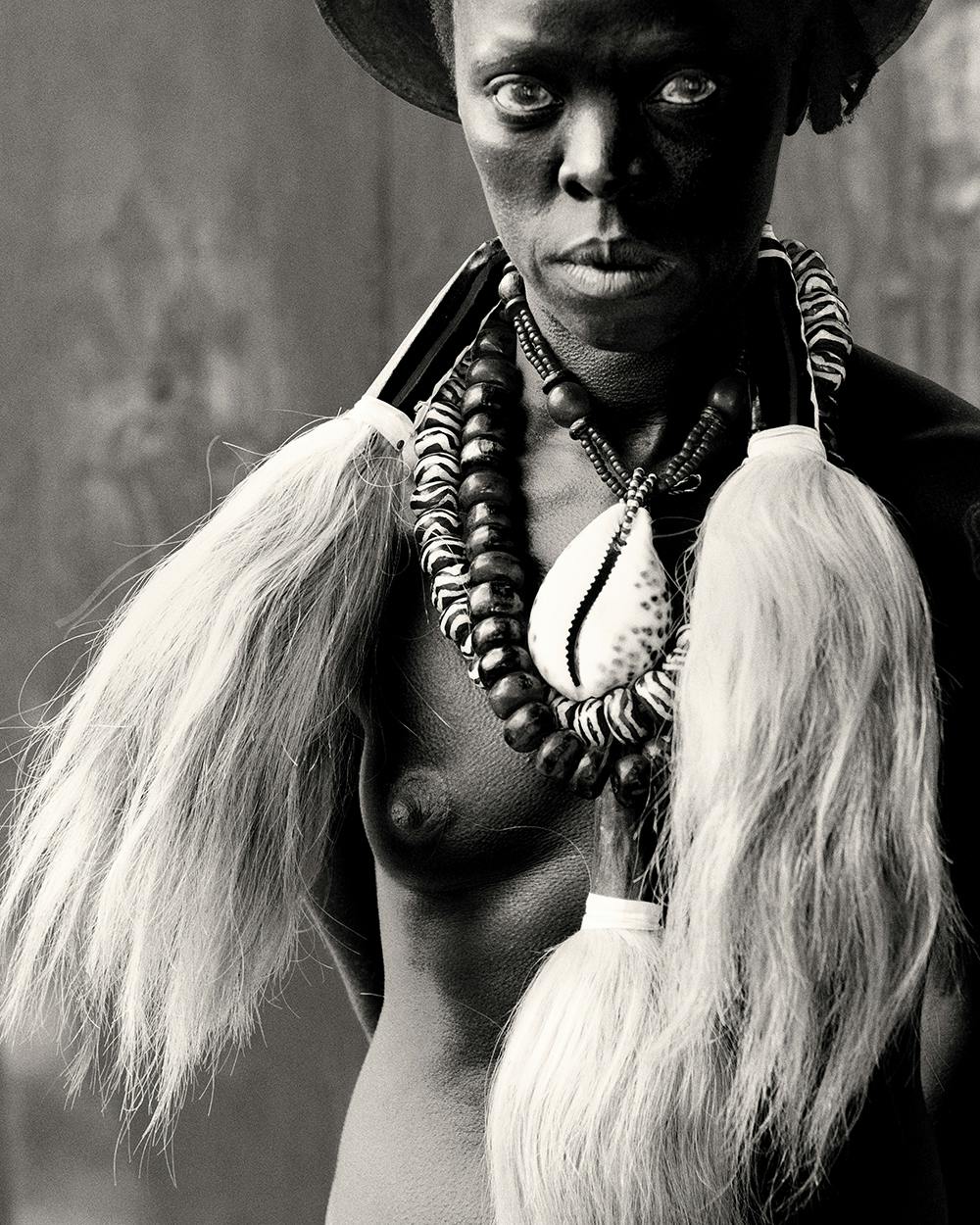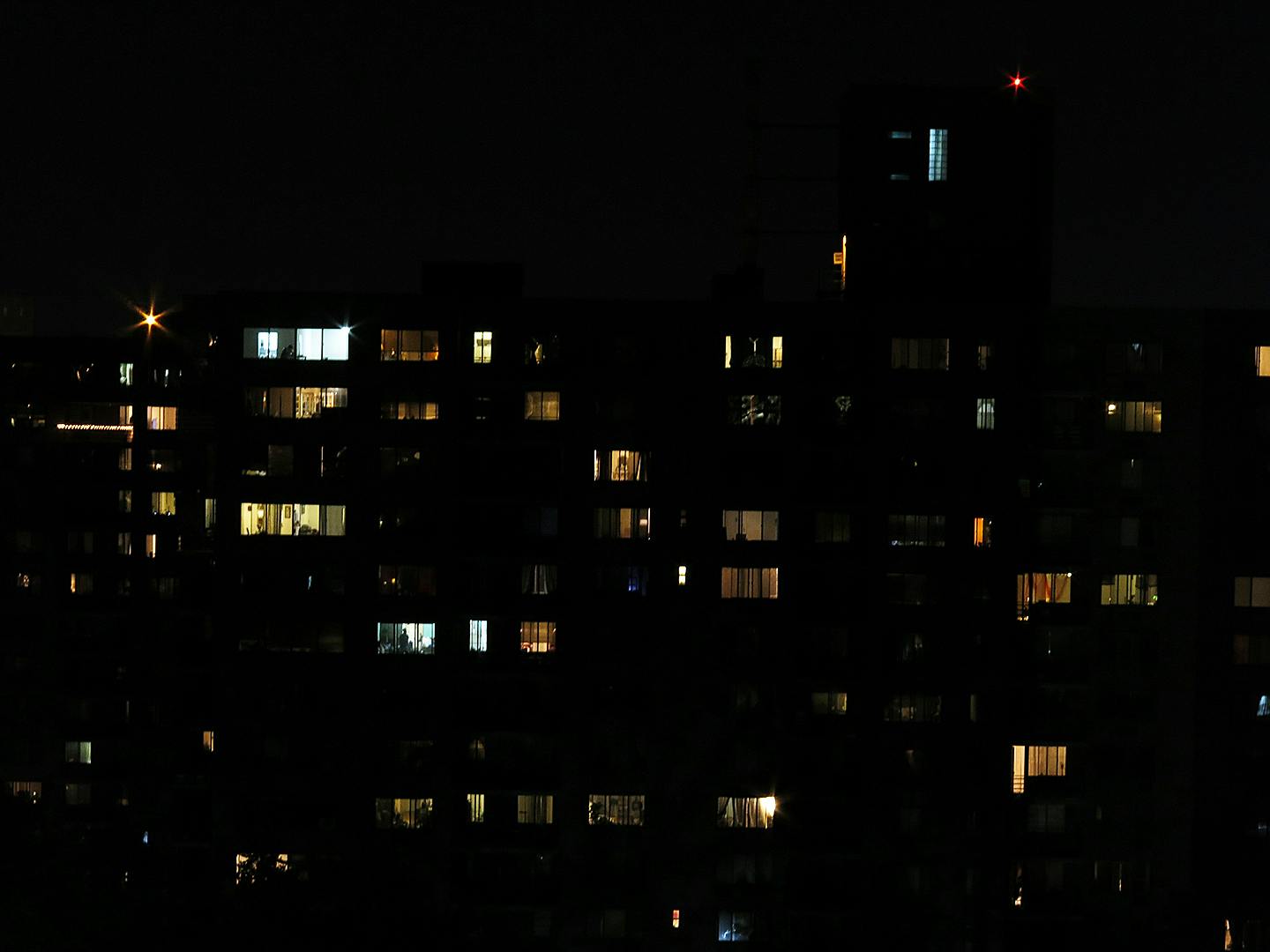Harlem Postcards Fall/Winter 2015–16
11.12.2015-03.06.2016



This postcard is inspired by the commerce of the landscape of Harlem, from small businesses to large department stores. The photograph comes from a series of images taken on city sidewalks in Harlem, Philadelphia and Chicago against, on top of or next to discarded materials such as paper, cardboard, gum and slabs of concrete. Construction debris, newspapers and sale circulars are the components of these improvised sidewalk compositions, works of material residue that get at what it means to occupy, inhabit and move through multiple urban spaces.

In Search of the Sweet Life is a reimagining of the time when migrating from the South to New York meant finding opportunity, when moving uptown symbolized safety and the New Negro was in style. This is the time when Harlem was en vogue, according to Langston Hughes, a time when men and women strutted down the avenues between Amsterdam and Edgecombe in their Sunday best, when the neighbors were Lena Horne, Joe Lewis, Ella Fitzgerald and the Duke, Mr. Ellington, of course. This was the Harlem Renaissance. And this is Sugar Hill today. Since the arrival of brown and Black bodies on “American” soil, we have been on an endless quest to understand what our American Dream should look like, a dream in which our brothers and sisters do not swing from the tops of trees and are not gunned down by those who are supposed to keep our neighborhoods safe, in which we are not falsely incarcerated and left to die in solitude, in which our children can grow up, know they have worth, and can never be denied access because of the color of their skin, in which we are not pushed out of neighborhoods once called ghettos. This image is dedicated to my great aunts Pauline, Gladys and Flora.


A Sunday night in September, around midnight, the balcony of Eden Roc, one of the six Lenox Terrace apartment buildings, constructed in 1958 and considered the first luxury apartments in Harlem. I look down and see silhouettes walking by, but from the sixteenth floor they are small and don’t notice me. I look up and see the glow from downtown. To my left is the Buckingham, identical to the building I am standing in. Like a grand television, the apartments radiate gradients of red, blue, green and white. Shadows dance in kitchens and bedrooms while other rooms remain empty. I’m sure it must be the same from each of their windows: a view of the switchboard of Harlem life, the endless hum from the streets below.
Harlem Postcards Fall/Winter 2015–16
11.12.2015-03.06.2016



This postcard is inspired by the commerce of the landscape of Harlem, from small businesses to large department stores. The photograph comes from a series of images taken on city sidewalks in Harlem, Philadelphia and Chicago against, on top of or next to discarded materials such as paper, cardboard, gum and slabs of concrete. Construction debris, newspapers and sale circulars are the components of these improvised sidewalk compositions, works of material residue that get at what it means to occupy, inhabit and move through multiple urban spaces.

In Search of the Sweet Life is a reimagining of the time when migrating from the South to New York meant finding opportunity, when moving uptown symbolized safety and the New Negro was in style. This is the time when Harlem was en vogue, according to Langston Hughes, a time when men and women strutted down the avenues between Amsterdam and Edgecombe in their Sunday best, when the neighbors were Lena Horne, Joe Lewis, Ella Fitzgerald and the Duke, Mr. Ellington, of course. This was the Harlem Renaissance. And this is Sugar Hill today. Since the arrival of brown and Black bodies on “American” soil, we have been on an endless quest to understand what our American Dream should look like, a dream in which our brothers and sisters do not swing from the tops of trees and are not gunned down by those who are supposed to keep our neighborhoods safe, in which we are not falsely incarcerated and left to die in solitude, in which our children can grow up, know they have worth, and can never be denied access because of the color of their skin, in which we are not pushed out of neighborhoods once called ghettos. This image is dedicated to my great aunts Pauline, Gladys and Flora.


A Sunday night in September, around midnight, the balcony of Eden Roc, one of the six Lenox Terrace apartment buildings, constructed in 1958 and considered the first luxury apartments in Harlem. I look down and see silhouettes walking by, but from the sixteenth floor they are small and don’t notice me. I look up and see the glow from downtown. To my left is the Buckingham, identical to the building I am standing in. Like a grand television, the apartments radiate gradients of red, blue, green and white. Shadows dance in kitchens and bedrooms while other rooms remain empty. I’m sure it must be the same from each of their windows: a view of the switchboard of Harlem life, the endless hum from the streets below.
